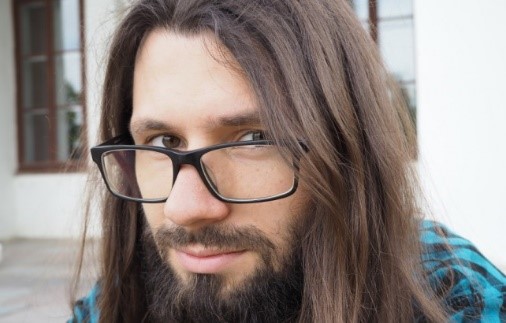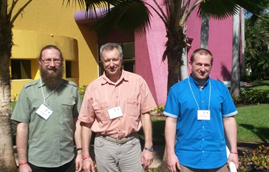2024
| The European Molecular Biology Organisation (EMBO) Installation Grant | ||
 |
Dr. Stephen Knox Jones Jr. | To develop reliable and predictable gene editing tools, expand and improve an ability to program the molecular machines, including CRISPR-Cas enzymes that are used for gene editing. |
2023
| European Research Area (ERA) and Marie Skłodowska-Curie Actions Postdoctoral Fellowships | ||
 |
Dr. Maria Fernanda Torres Jimenez Dr. Jorūnė Sakalauskaitė |
Dr. M. F. Torres Jimenez for the project “Outcomes of Plant Invasions in Deadwood Fungi and Insect Communities – ENTWINE” Dr. J. Sakalauskaitė for the research work “The Molecular Suite of Shell Bio- & ArCHaeochromes – BACH” |
| European Molecular Biology Organization (EMBO) Installation Grants | ||
 |
Dr. Gytis Dudas Dr. Patrick Pausch |
Dr. G. Dudas' research interests are virus evolution, metagenomic virus discovery, genomic epidemiology. Dr P. Pausch investigates how to advance genome editing technologies. The new EMBO installation grantees will establish laboratories in different European countries. In Lithuania, the grant winners, Dr. G. Dudas and Dr. P. Pausch, will use the funding to develop their laboratories and research at the VU LSC. One laboratory will be established in Croatia, one in the Czech Republic, one in Estonia, two in Lithuania, two in Poland, two in Portugal, and two in Turkey. |
| L’Oréal-UNESCO Baltic For Women in Science Fellowship | ||
 |
Dr. Migle Tomkuviene | For the study of rare mutations affecting epigenetic regulation. Every cell in the human body has the same genome, but different organs develop from them. It depends on small molecular machines, epigenetic regulators, that act on DNA. They precisely coordinate different gene expression according to the needs of each cell, each organ. When the harmonious activity of the orchestra of genes is disrupted, the health deteriorates. The researcher aims to better understand human development and open the way to new treatments for epigenetic diseases. |
| iGEM (International Genetically Engineered Machine) Competition Gold Medal for Excellence in Synthetic Biology | ||
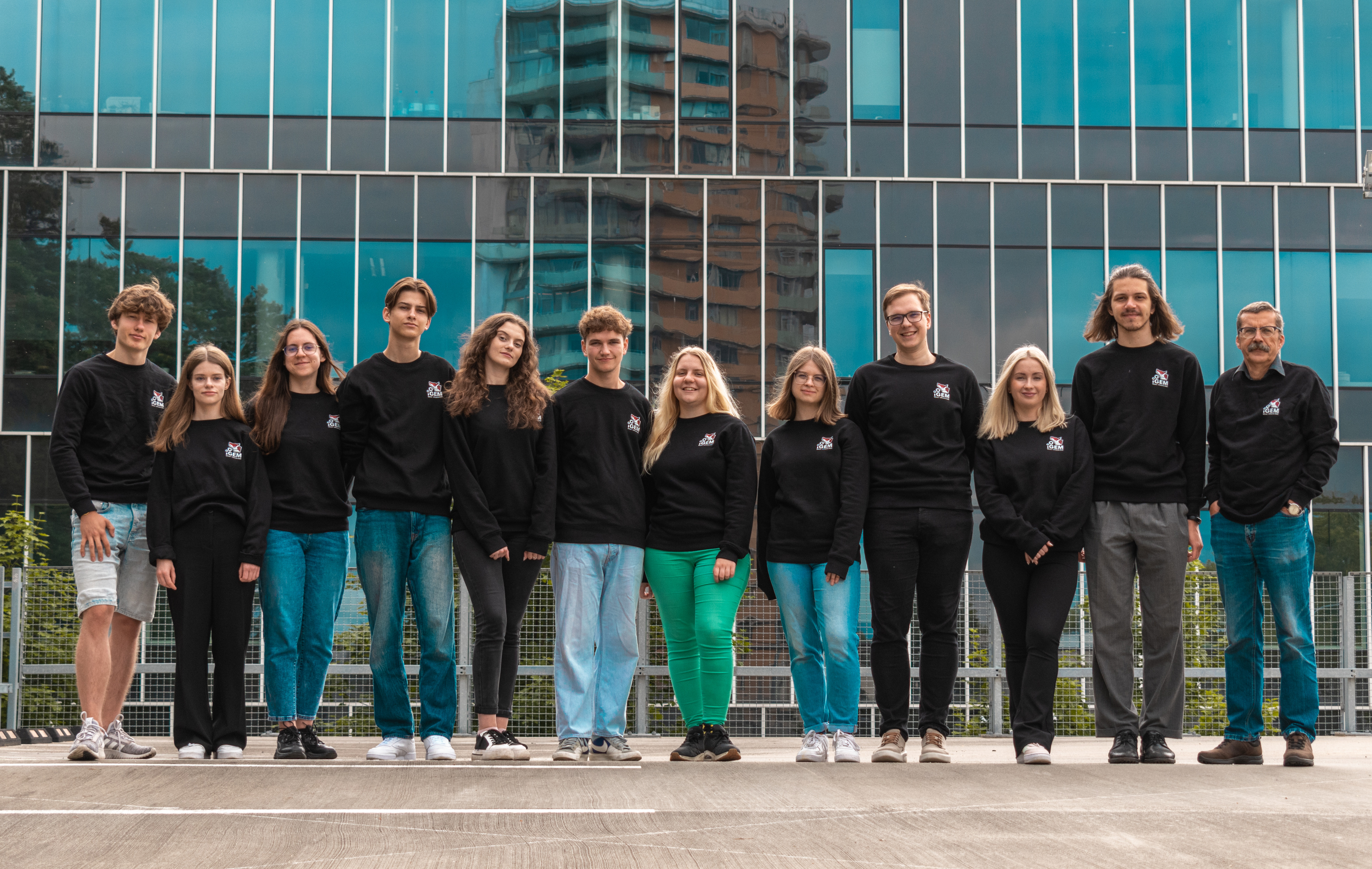 |
Team leader Matas Rarivanas |
The Vilnius-Lithuania iGEM team was nominated for: - TOP 5 for the best biomanufacturing project; |
2022
| European Research Council (ERC) Starting Grant | ||
 |
Dr. Stephen Knox Jones Jr. | This grant is the first in Lithuania. Dr. S. K. Jones Jr. will lead a project "Profile nucleases and Repurpose Off-Targets to Expand Gene Editing", which aims to improve gene editing techniques. |
| L’Oréal-UNESCO Baltic For Women in Science Fellowship | ||
|
|
PhD student Greta Jarockytė |
Awarded for her research that focuses on the application possibilities of theranostic nanoparticles in the diagnosis and therapy of oncological diseases. |
| PRACE HPC Excellence Award | ||
|
|
Dr. Andrius Merkys | Awarded (with co-authors) for the work "Two-dimensional materials from high-throughput computational exfoliation of experimentally known compounds" described in the publication in the Nature Nanotechnology 13, 246–252 (2018). |
| European Molecular Biology Organization (EMBO) Scholarship | ||
|
Rokas Grigaitis |
To study the recently discovered extremely large bacteriophages. | |
2021
| L’Oréal-UNESCO Baltic For Women in Science Fellowship | ||
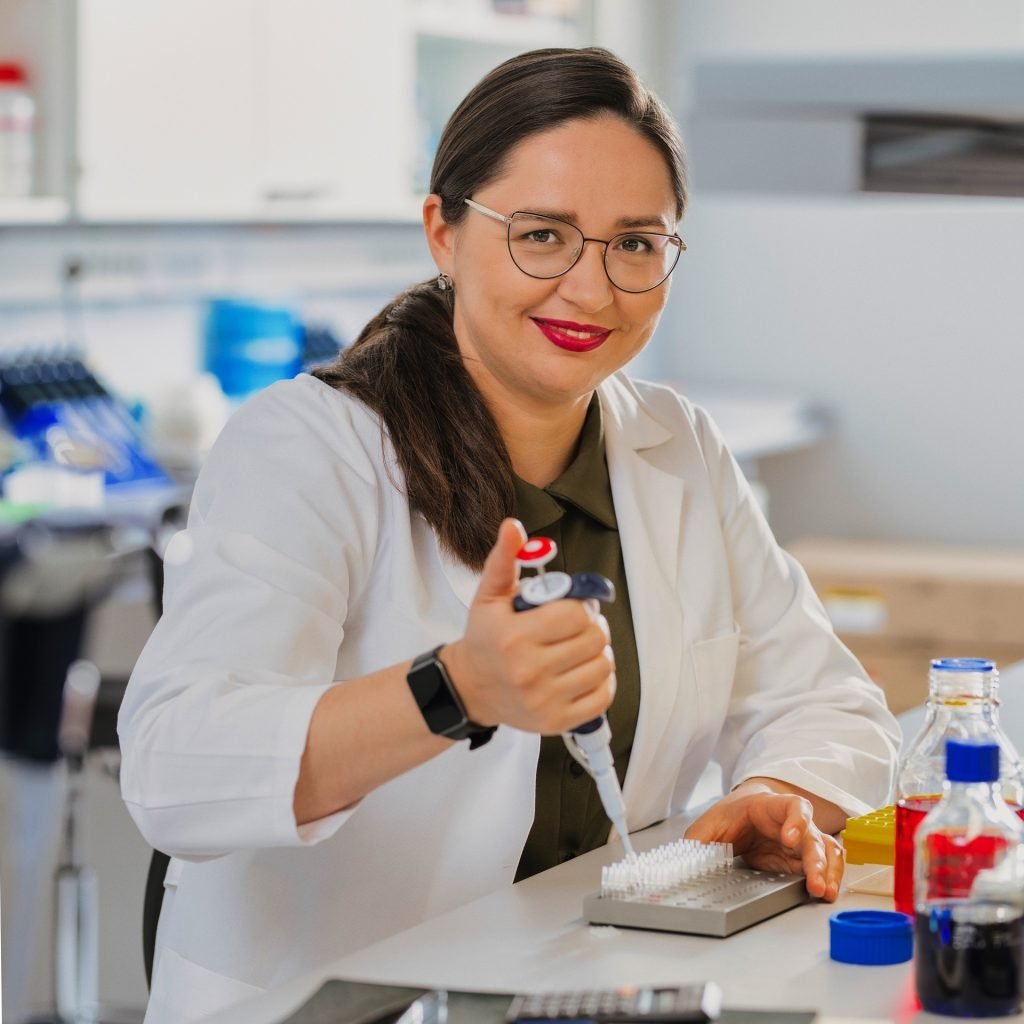 |
Dr. Joana Smirnovienė |
For the research that focuses on the development of innovative pharmaceuticals for the treatment of cancer and obesity. |
| The Baltic Assembly Science Prize | ||
|
|
Prof. Virginijus Šikšnys | For outstanding achievements in the field of biomedical sciences – pioneering research in CRISPR-Cas9 genome editing. |
| iGEM (International Genetically Engineered Machine) Competition Gold Medal | ||
 |
Team Leaders: |
The Vilnius-Lithuania iGEM team has competed with the project AmeBye, designed to prevent the spread of infectious amoebiasis. Throughout the competition cycle, the young researchers developed naringenin-synthesizing probiotics for the prevention of the infection as well as a diagnostic test. |
| International Directed Evolution (iDEC) Competition Gold medal, Most Potential Tool Prize and Best Community Building Prize | ||
 |
PhD students: |
The project “Ultra-high Throughput Evolution of a Bacterial Endolysin as a New Antimicrobial Agent” was carried out using microfluidic technology developed by the Vilnius university Life Sciences Center Prof. Linas Mažutis in collaboration with Harvard University scientists proposing a solution to reprogram a protein used by pathogenic bacteria for reproduction and turn it into a new type of antibacterial agent against one of the most dangerous pathogens Staphylococcus aureus. |
| European Molecular Biology Organization (EMBO) Installation Grant | ||
 |
Dr. Algirdas Toleikis | Dr. A. Toleikis will be using single molecule force measurements and magnetic tweezers to study the Cas3 helicase motor in CRISPR, short DNA sequences found in prokaryotes that identify and attack pathogenic viruses. |
2020
| Top performance in CAPRI (Critical Assessment of PRedicted Interactions) and CASP (Critical Assessment of Protein Structure Prediction) competitions | ||
|
|
Dr. Česlovas Venclovas Dr. Justas Dapkūnas Dr. Kliment Olechnovič |
The team shared the first place jointly with two other groups in CAPRI and were ranked second in the category of protein complex structure modelling in CASP. CASP is a biennial worldwide experiment for protein three-dimensional structure prediction from its amino acid sequence taking place since 1994. The aim of CASP is to help advance the methods of computational protein structure modelling. CAPRI is another community‐wide initiative inspired by CASP and running since 2001 focusing entirely on prediction of structures of protein complexes. |
| L’Oréal-UNESCO Baltic For Women in Science Fellowship | ||
 |
Dr. Rima Budvydytė PhD student Dominyka Dapkutė |
Dr. R. Budvytytė for her research that focuses on investigation of biochemical and biophysical processes triggering neurodegenerative diseases such as Alzheimer’s and Parkinson’s on molecular level. D. Dapkutė for her research into the ways of introducing nanotechnology-based teranostatic measures (combining diagnostics and therapy) into the cancerous tissue by using unique cells of the human body, mesenchymal stem cells. |
| International Genetically Engineered Machine (iGEM) Competition Grand Prize, Gold Medal, Best Environment Project and Best Measurement awards | ||
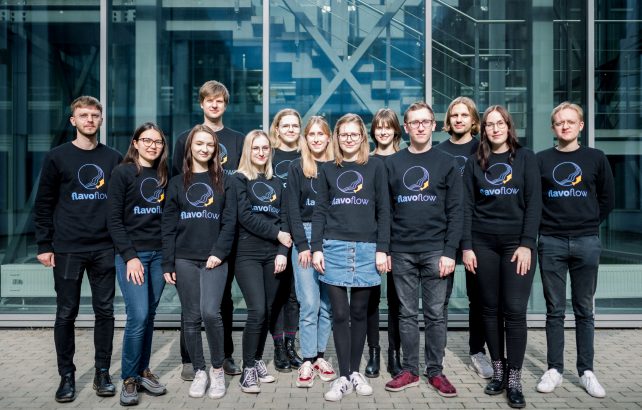 |
Team Leader: Ieva Lingytė |
The Vilnius-Lithuania iGEM team has competed with their FlavoFlow project dedicated to the topic of exogenous fish infections. The team has developed a rapid detection tool for early diagnosis of diseases in fish farms. At the same time, seeking to lay the foundations for various solutions to the problem, they focused on the development of platforms for the treatment and prevention of exogenous fish infections. |
2019
| Somerfeld-Ziskind Research Award | ||
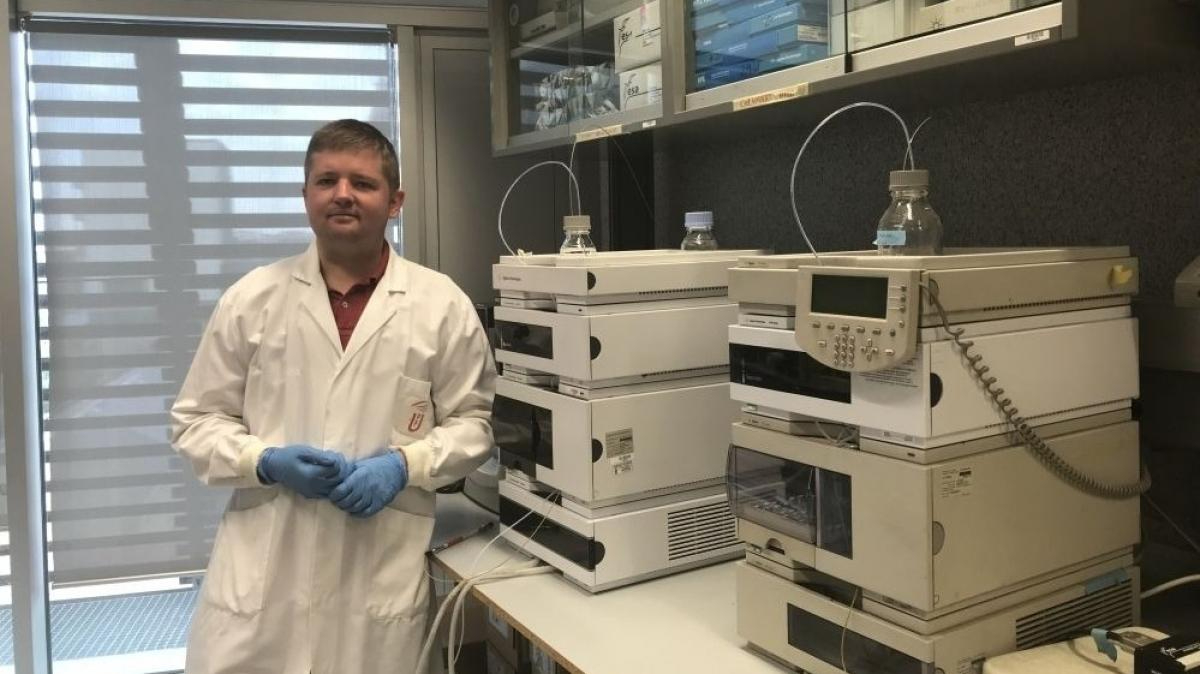 |
Dr. Aurelijus Burokas |
To recognize outstanding research investigations in biological psychiatry. Dr A. Burokas studies the role of the microbiota-gut-brain axis in a variety of psychological processes and neuropsychiatric disorders. |
| L'Oréal-UNESCO Baltic For Women in Science Fellowship | ||
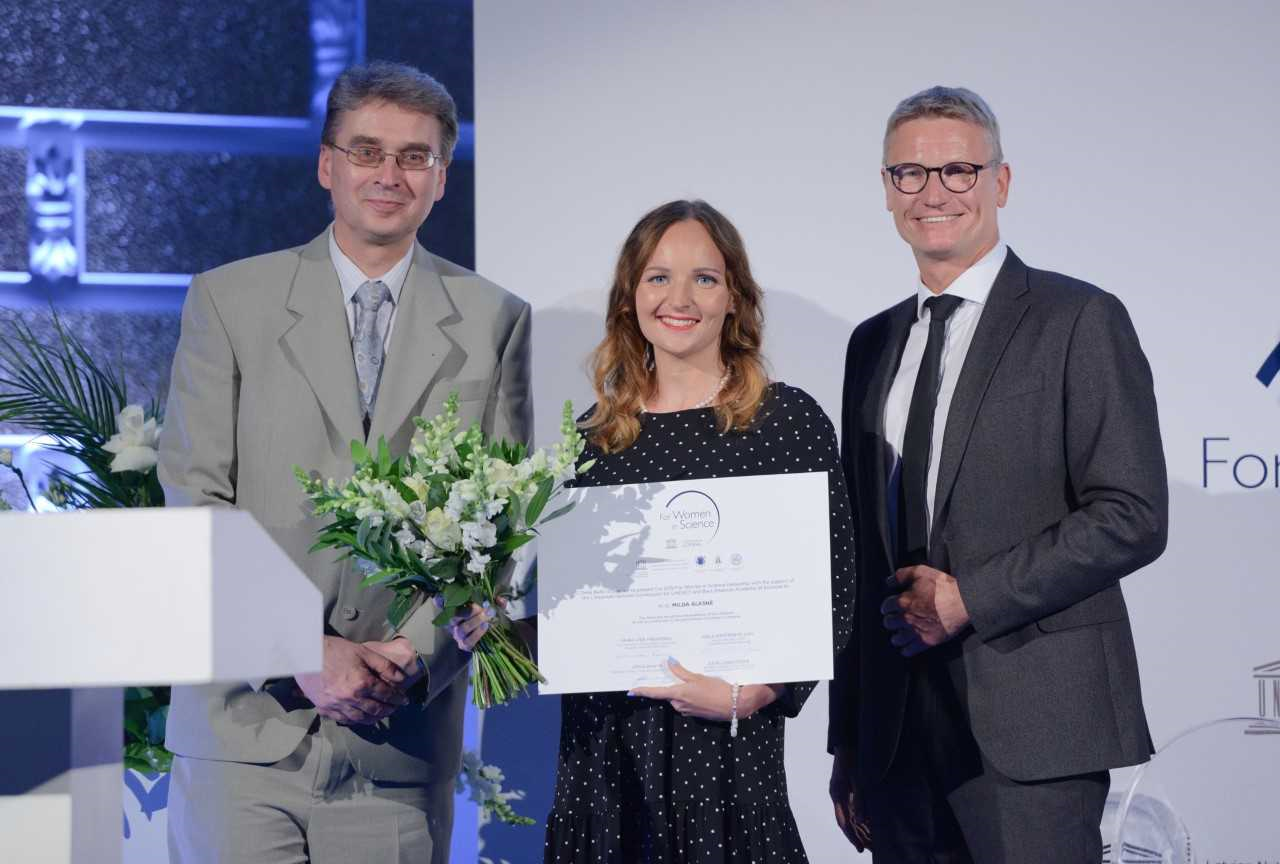 |
PhD student Milda Alksnė |
M. Alksnė’s research area is regenerative medicine, namely bone tissue engineering using 3D printing technology. The main goal of the M. Alksnė's Grant project is to create composite 3D printing scaffolds that promote not only bone formation but also angiogenesis. |
| L’Oréal Foundation and UNESCO International Rising Talents Award | ||
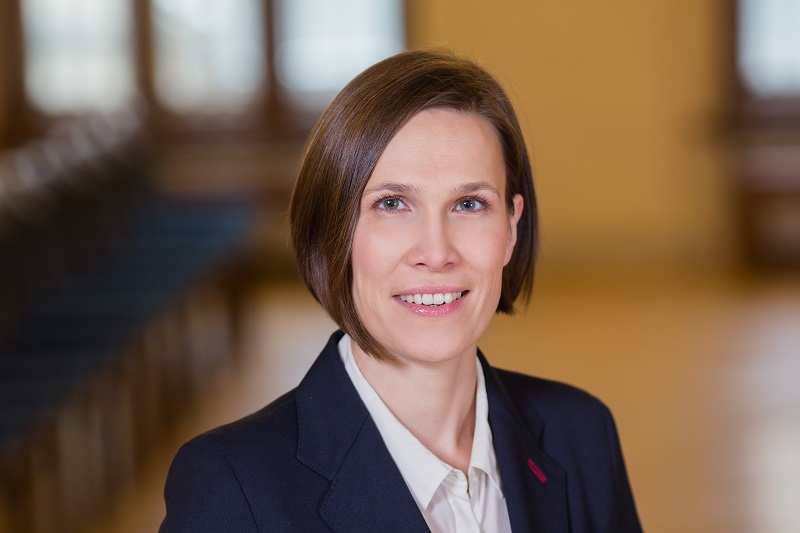 |
Dr. Urtė Neniškytė | For her studies how brains develop in early childhood (from 6 months to 6 years old), with reference to anomalies that can lead to serious mental illnesses. She explores why excessive synapses (connections between neurons) sometimes remain, rather than being removed or “pruned” for optimum efficiency. |
| iGEM (International Genetically Engineered Machine) Competition Gold medal | ||
|
|
Team Leader: Valentas Brasas |
The Vilnius-Lithuania iGEM team competed with their project Colight – a multi-level collection of optogenetic tools for modular bacteria control. |
2018
| Kavli Prize in nanoscience | ||
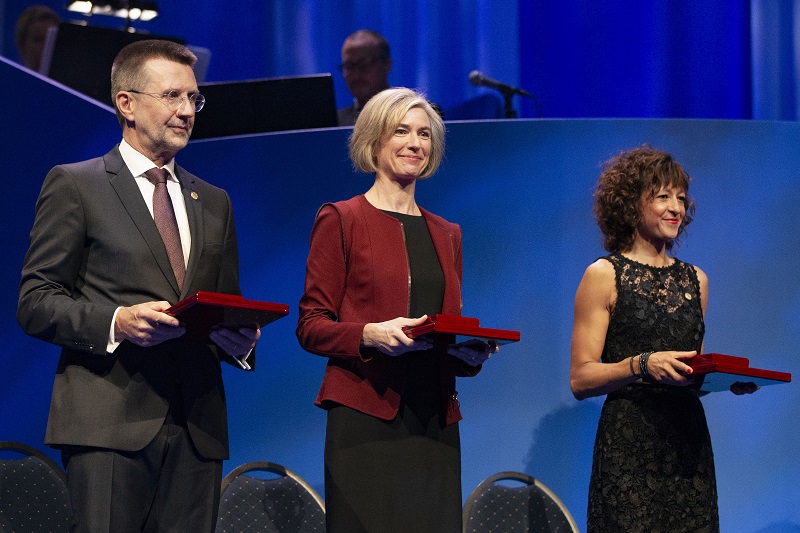 |
Prof. Virginijus Šikšnys Emmanuelle Charpentier (Max Planck Institute for Infection Biology, Germany) Jennifer A. Doudna (University of California, Berkeley, USA) |
For the invention of CRISPR-Cas9, a precise nanotool for editing DNA, causing a revolution in biology, agriculture, and medicine. Prof. V. Šikšnys has made a major and sustained contribution to the understanding of the CRISPR-Cas systems. |
| Top Performance at Critical Assessment of Protein Structure Prediction (CASP) Competition | ||
 |
Dr. Česlovas Venclovas Dr. Justas Dapkūnas Dr. Kliment Olechnovič |
According to the independent CASP assessment, the Vilnius university Life Sciences Centre team achieved the best results in modelling protein complexes. In addition, their method for estimation of model accuracy (VoroMQA) was also among the best performing at CASP. |
| iGEM (International Genetically Engineered Machine) Competition Gold and Bronze Medals | ||
 |
Team leaders: Laurynas Karpus Justas Ritmejeris |
Gold medal for the development of a completely new approach based on microfluidic technologies and DNA modifications, which allow characterization of enormous amount of biological components and their combinations quite efficiently. Bronze medal for the development of the SynDrop – synthetic droplets for membrane protein research system. The SynDrop was designed using innovative microfluidic technologies and cell-free protein expression systems. This allowed utilizing liposomes as nanofactories for the synthesis and various modifications of membrane proteins. |
2017
| The Novozymes Prize | ||
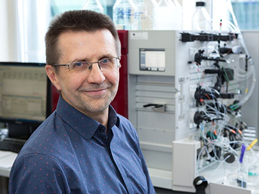 |
Prof. Virginijus Šikšnys Dr. Emmanuelle Charpentier (Max Planck Institute for Infection Biology, Germany) |
For the contributions in the development of the CRISPR-Cas9 gene editing tool – one of the most important scientific breakthroughs that opened new opportunities for researchers to edit and modify genes of various organisms. |
| The Lithuanian-American Innovation Award | ||
 |
Dr. Linas Mažutis Prof. Virginijus Šikšnys Dr. Giedrius Gasiūnas Dr. Tautvydas Karvelis |
Dr. L. Mažutis received the award for developing a technique for the efficient isolation and sequencing of single cells in collaboration with scientists from Harvard University. Prof. V. Šikšnys, Dr. G. Gasiūnas and Dr. T. Karvelis were awarded for the development of the CRISPR-Cas9 technology, which enables the editing of genomes. |
| L`Oréal-UNESCO Baltic For Women in Science Fellowship | ||
 |
Dr. Urtė Neniškytė | Dr. U. Neniškytė investigates molecular mechanisms that guide synaptic pruning in the developing brain during brain circuit maturation and is the first scientist in Lithuania ever to have received this award. |
| iGEM (International Genetically Engineered Machine) Competition Grand Prize and Gold medal, Best New Basic Part, Best New Composite Part and Best Part Collection awards | ||
 |
Team Leader: Gabrielius Jakutis |
The Vilnius-Lithuania iGEM team competed with their project SynORI – a framework designed to make working with single and multi-plasmid systems precise, easy and more functional. This system will help with everyday lab work, and it can also be used for biological computing and the assembly of large protein complexes or metabolic engineering. |
| European Research Council (ERC) Advanced Grant | ||
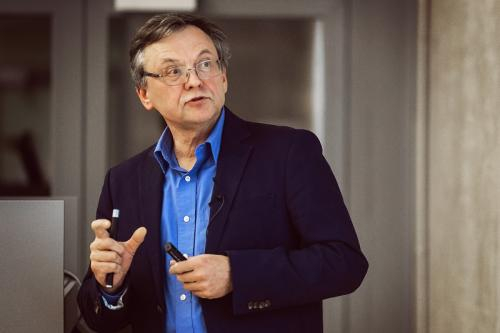 |
Prof. Saulius Klimašauskas | For the research proposal on epigenetic change „Single-cell temporal tracking of epigenetic DNA marks“ |


